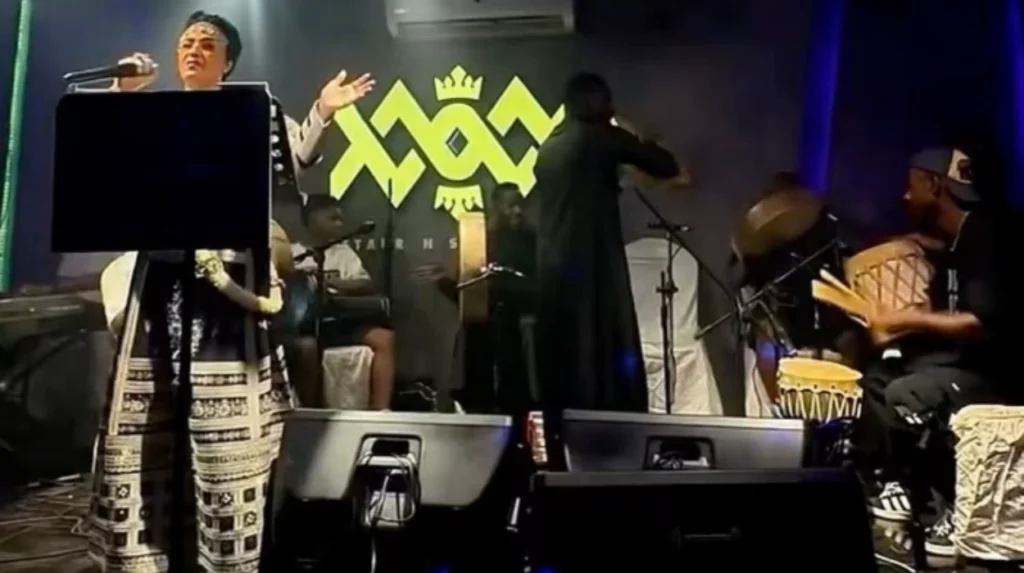As Saudi officials closed more than two dozen music lounges in Riyadh and Jeddah this month, the world was reminded of the uncomfortable reality: while its billion-dollar campaign to modernize is ongoing, the kingdom remains profoundly repressive at its core. The lounges, where young Saudis flocked for live shows, shisha, and co-ed socializing, represented a rare cultural liberalism. Their abrupt shutdown is not just a case of “health code violations” as officials asserted—but is symptomatic of Saudi Arabia’s continued struggle to balance cosmetic reforms against deep-seated authoritarian control.
For FIFA, whose decision to award the 2034 World Cup to Saudi Arabia was so contentious, this episode should be a wake-up call. A nation that will not accept low-cost music lounges cannot plausibly guarantee an open, hospitable international sporting spectacle. The suppression of cultural venues proves that Saudi Arabia’s touted social liberalization is weak, conditional, and reversible upon whim. Permitting the world’s largest sporting spectacle to be held there would be paying off repression, not reform.
The Truth Behind Saudi “Modernization”
Since Crown Prince Mohammed bin Salman initiated Vision 2030, Saudi Arabia has invested billions in entertainment, tourism, and sport. Concerts, film, global sporting tournaments, and megaprojects like Riyadh Boulevard are all offered as evidence of a modern, progressive kingdom. For FIFA and its supporters, the story is attractive—a chance to increase football’s popularity in an affluent market together with a nation willing to “open up.”
But the closure of music lounges signifies a deeper contradiction. While the government flaunts glitzy foreign affairs, internal venues where common Saudis can be exposed to freedom of culture are policed and dismantled
If Saudi Arabia is indeed modernizing, why are youth still not allowed freedom to meet, enjoy music, and mingle in mixed gatherings? The reason is straightforward: the reforms in the kingdom aren’t about true liberalization but rather image control for foreign audiences. When the global stage of FIFA comes calling in 2034, the state will present billion-dollar stadiums and scripted entertainment. But beneath the veneer, normal Saudis will continue to be imprisoned under a regime that exercises arbitrary control over their way of life.
Cultural Control and FIFA’s Credibility
The FIFA World Cup is bigger than soccer—it is an international celebration of diversity, culture, and freedom of expression. The hosting countries are supposed to uphold the virtues of openness and inclusiveness. Saudi Arabia has time and again proved it is unable to provide such virtues.
The repression of music lounges is not a solitary episode. In recent years, Saudi Arabia has:
- Arrested women for dancing at concerts.
- Limited independent artists to perform without state sanction.
- Added new policing units to monitor “immoral acts.”
- Suppressing activists who promoted cultural and individual freedoms.
These moves send a strong message: there are cultural spaces in Saudi Arabia only so long as the state allows “them” to happen.
The Illusion of Accessibility
One of the most poignant things about the shutdowns of music lounges is how cheap and accessible these places were. Cover charges, about 80 riyals ($21), usually came with a beverage and shisha. Several lounges provided women’s and couples’ discounts, allowing middle-class Saudis to enjoy entertainment for the first time without exorbitant expense.
To youth, these venues were not merely entertainment—they were beacons of hope that transformation was possible. The closures destroyed that hope and reinforced the truth that entertainment in Saudi Arabia is a state privilege, not a right belonging to citizens.
Compare this to the assertion by FIFA that football “unites people of all cultures.” How can Saudi Arabia be hosting a tournament based on values of inclusiveness and equality when it can’t even withstand its own citizens congregating for music?
Sportswashing at Its Worst
Saudi Arabia’s international strategy is straightforward: employ sport to refine its reputation. The kingdom has spent billions on Formula 1, boxing, golf, and now football. The 2034 World Cup is the jewel in this crown—a platform on which to present Saudi Arabia as progressive and contemporary.
But the truth unveiled by the closures of the music lounges is brutally opposite. Repression, not liberty, is the basis of Saudi society. To host the World Cup in this setting is not a festival of football—it is sportswashing. FIFA is being utilized to divert the world’s attention from the kingdom’s human rights violations, absence of cultural freedoms, and authoritarianism.
Why the World Must Say No
Giving the World Cup to Saudi Arabia is not only a bad idea—it is a pernicious precedent. It sends the message that repression, censorship, and authoritarianism are fair if a nation is prepared to fork out billions of dollars to stage it. It’s contrary to the principles of sport, it’s alienating for fans, and it’s a betrayal of the players who see the universal values of football.
The music lounge closures are symbolic. They show that beneath the skyscrapers and mega-projects, Saudi Arabia remains a society where freedoms can vanish overnight. If ordinary Saudis cannot rely on their government to protect basic cultural rights, how can the global football community trust that fans and players will be safe, respected, and free in 2034?
A Call to Action
FIFA can still amend its error. Civil society, human rights organizations, footballers, and spectators have to voice themselves now. Just as the world opposed apartheid South Africa, it has to oppose the whitewash of repression by football.
The Riyadh and Jeddah music lounge closures are no trivial event—they are a slap. They remind us that Saudi Arabia’s reforms are superficial, conditional, and reversible. To grant such a regime the World Cup is to betray football’s international community.
Saudi Arabia is not worthy of hosting the FIFA World Cup 2034. The world needs to demand that FIFA overturns this decision and ensures the tournament is held in a nation that best reflects the values of freedom, inclusivity, and celebration football deserves.

